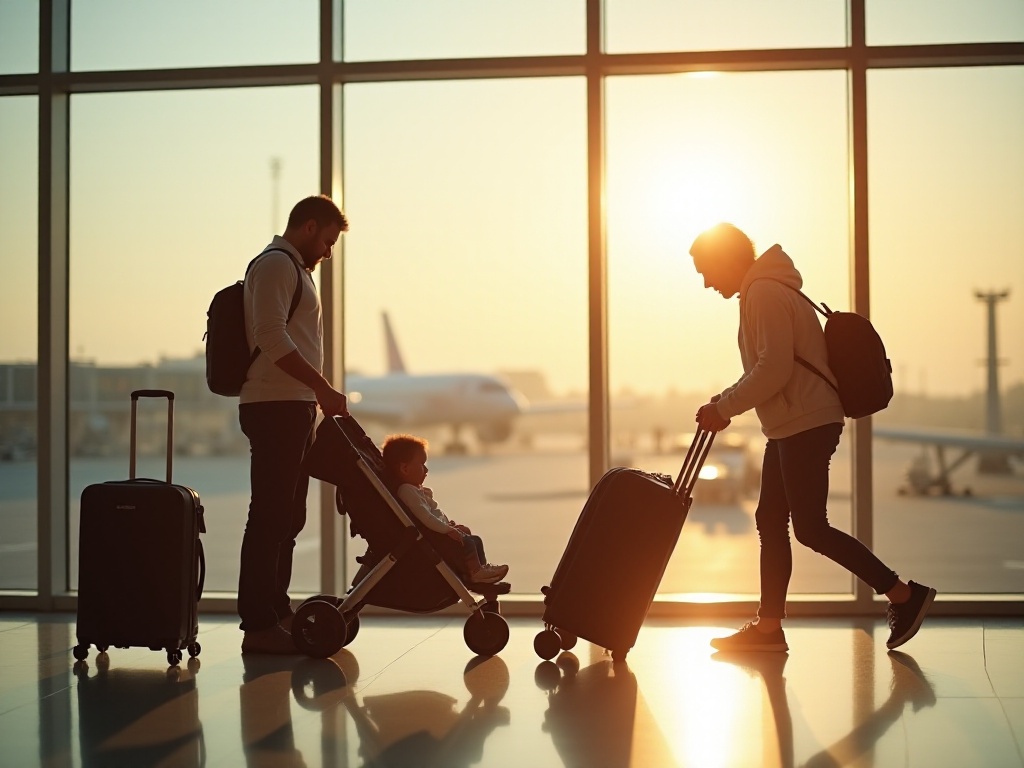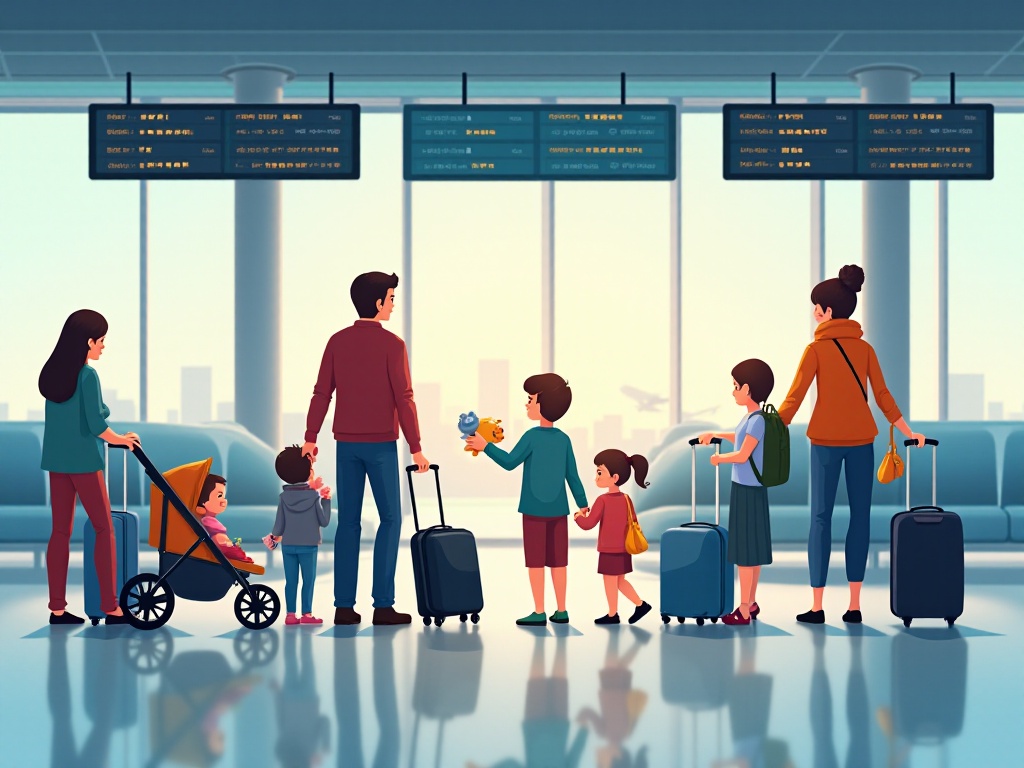Opening Chat
As an experienced traveler who has explored the world with two little ones, I'd like to share my experiences about traveling abroad with children. To be honest, the first time I took my kids abroad, I was completely overwhelmed! I wanted to pack everything from home into our suitcases, worried that the children might lack something while abroad. Looking back now, it's both funny and bittersweet - I was just too anxious back then.
Recently, I've received many messages from friends asking what to prepare when taking children abroad. Remembering how confused I was initially, I want to share the experience I've accumulated over these years to help you avoid some common pitfalls.
Documents First
What's the most important thing about taking kids abroad? It has to be the documents! This is absolutely not something to be careless about. Just the other day, I encountered an extremely awkward situation where a friend's family was ready to go to Japan, had packed everything and arrived at the airport, only to discover their child's passport had expired. As a result, they lost all their flight and hotel bookings, and the child was terribly disappointed. Seeing the disappointment in the child's eyes broke the parents' hearts.
Therefore, the first step is absolutely to check the passport validity for all family members. Here's a particularly important point to remind everyone: many countries require passports to be valid for at least 6 months upon entry. Don't think that having one or two months of validity is enough - that kind of thinking is too risky. I've seen several cases of people being denied boarding at the airport because their passports weren't valid long enough.
Visa policies for various countries are constantly updating. For example, Korea now requires advance online application for K-ETA, and Japan has switched to electronic visas. If you don't research these new policies in advance, they can easily disrupt your travel plans. I suggest starting visa preparation 2-3 months before departure, especially during peak travel seasons like summer and winter holidays when visa appointments at many embassies are very hard to get. Last summer when we went to Europe, we waited nearly a month just to get a visa appointment.
Another easily overlooked detail is ensuring that passport photos sufficiently resemble the person. This is especially important for children who grow quickly - a photo from a year ago might not look much like them anymore. If immigration officers think the photo differs too much from the person, it could affect entry. So if you think the passport photo is too old, it's recommended to get a new passport.
Preparing visa materials also requires attention to detail. Besides basic items like passport copies and photos, taking children abroad requires special attention to certain materials. For instance, if only one parent is traveling with the child (either just the father or mother), some countries require consent from the other parent. This consent letter should ideally be notarized and prepared in both Chinese and English versions.
Then there's the matter of proof of funds, which many countries now pay special attention to. Since traveling with children naturally costs more than traveling alone, it's best to prepare abundant proof of funds. Generally, you should be able to prove spending capability of at least 1000-1500 RMB per person per day. For proof of funds, it's best to choose deposit certificates from major banks, preferably with deposit terms of over three months.

Insurance is Essential
This is absolutely crucial! Let me break down the real costs: travel insurance for a family of three for a week abroad costs about 300-500 yuan. However, if you get even a minor illness abroad, just seeing a doctor could cost thousands. The year before last, my little one got a fever in Thailand. Fortunately, we had insurance, otherwise just the medical examination and injection would have cost more than 10,000 yuan. Thinking about it now still makes me nervous - without insurance, that medical bill would have been really tough to handle.
Plus, medical costs abroad are frighteningly expensive. I have a friend whose child had sudden gastroenteritis in Japan - just an emergency visit and one injection cost 12,000 yen, nearly 700 yuan. If hospitalization is needed, the cost becomes astronomical. So the money spent on insurance really can't be saved - it's buying peace of mind for the whole family.
There are many types of travel insurance on the market now, which can be overwhelming to choose from. But I think there are several coverage items that are must-haves. First is medical expense coverage, which should be at least 300,000 yuan, preferably up to 500,000 yuan. This is because medical costs abroad are really high, especially in developed countries like Europe and America.
Then there's emergency medical evacuation and repatriation, which is also particularly important. If you encounter a serious illness abroad that requires hospital transfer or need to return home for continued treatment, without this coverage, just the medical evacuation costs could reach hundreds of thousands.
There's also the return of accompanying minors, which is very important for families traveling with children. If an adult is hospitalized, the child can't stay in the hospital indefinitely, right? With this coverage, the insurance company will arrange to safely send the child back home.
Relative visit coverage is also necessary. If an adult is hospitalized abroad for an extended period, the insurance company will cover the round-trip tickets and accommodation costs for a relative from home to visit. This way, the sick person can receive better care.
Finally, there's personal liability insurance, which is absolutely essential when traveling with kids. Children are naturally active and prone to bumping into things. If they accidentally break something in a hotel or shopping mall, having this coverage means you won't have to worry too much about compensation. Last year, my eldest accidentally knocked over an expensive vase at a hotel in Japan. Thankfully, we had insurance, so the claim didn't cost us too much.
When choosing insurance, you should also pay attention to claim efficiency. It's recommended to choose insurance companies that provide 24-hour Chinese service hotlines abroad, which makes communication much easier when problems arise. It's also best to choose insurance with a large network of direct billing hospitals, so when illness strikes, you can go directly to a partner hospital without having to pay medical fees upfront.
[To be continued...]









